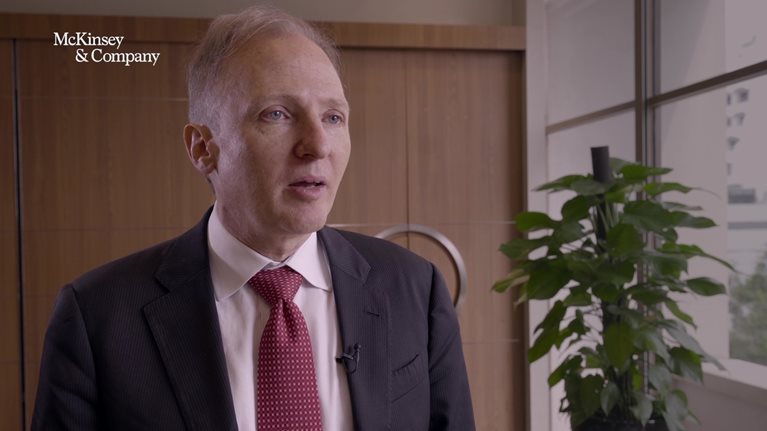What are the top three most disruptive powerful forces shaping the Asian financial service sector?
Asia financial services and banking are going through major turmoil at the moment. We see a lot of pressure from macros, which are not where they used to be with falling growth rates. We see pressure from geopolitics, where the trade wars and other political concerns are influencing the banking environment. And obviously, we see attackers coming in—fintechs, more established techs—which are driving a lot of revolution in the banking sector, and higher demands for the customers to have a fully digitalized service. So, banks have no way not to try to fulfil their customers’ demands—that is what they are trying to do.
Would you like to learn more about the Future of Asia?
How should CEOs be responding to these forces as they think about their business strategies for the next decade?
Own your business strength, and ensure they’re in line with the new market conditions—which means that you need to get your costs under control. There is so much margin squeeze; there’s so much pressure on volumes, so you need to be good at the discipline of costs.
You also need to be good at the discipline of managing your risks when it comes to the creative risks you are taking onboard. But frankly, also increasing the conduct risks you have in your frontline. We have seen increased regulatory scrutiny into how you are dealing with your customers, and banks need to be aware of that.
Finally you need to be good at managing your capitals. Capitals are not for free anymore, so being good at managing that capital on your balance sheet is essential. But likewise, you don’t want to let go and focus only on your core business, you need to grow. And Asia is still in many ways the center of growth for banking in the world, you just need to be a little bit more selective. Areas like asset management and wealth management are huge growth areas going forward. Consumer finance is going to be a huge area going forward. So, there are still a lot of opportunities, but there will be more in pockets rather than broad-based growth.


